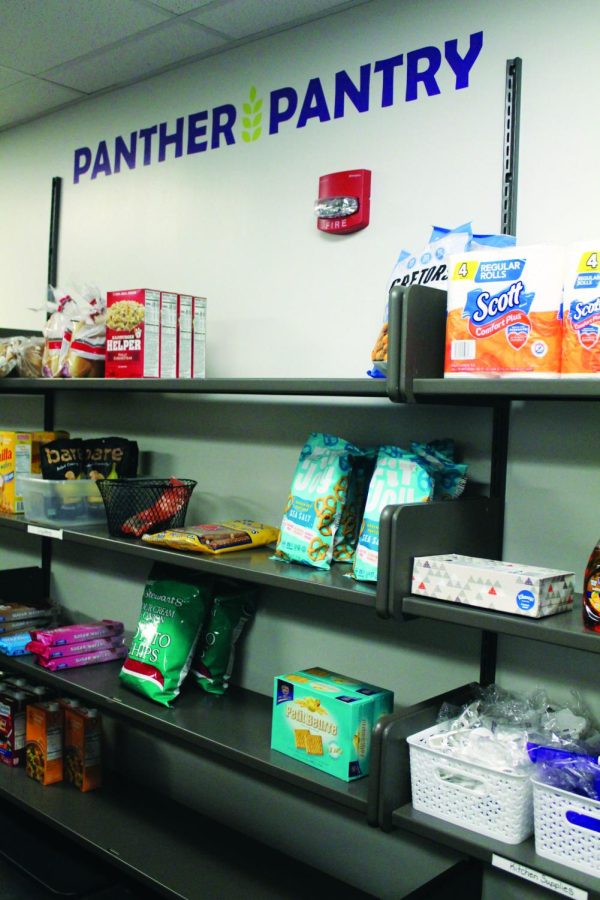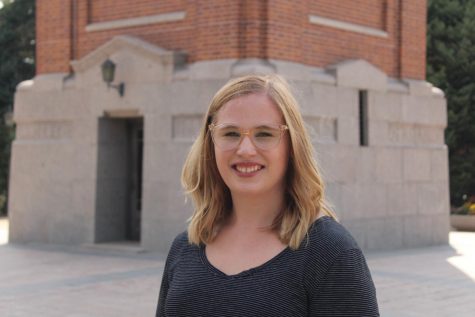Food and financial insecurity
The Panther Pantry is located in the basement of Maucker Union and is open from noon to 6 p.m. on Monday and Tuesday from noon to 5 p.m. They are also open on Wednesday from noon to 5 p.m. and on Thursday from 1 p.m. to 6 p.m.
Mar 7, 2022
For many, college life is a struggle financially. This can cause a variety of problems that affect nearly everyone. Sometimes financial struggle for students can present itself in ways as simple as the need to get a job in college to pay for gas or textbooks; for others, financial struggle can lead to far more critical situations. These critical situations can include homelessness, food insecurity, and limited access to healthcare.
I will never forget a conversation I had my freshman year at UNI with a friend where they told me that they weren’t sure where they were going to be able to live the following year while going to school. Following this statement, they shrugged their shoulders and said, “Well, I guess I can always sleep in my car.” This moment always stands out to me – it was the first time I had someone in my circle of friends that was potentially facing homelessness.
Following this, I made many more friends that had either gone through being homeless, food insecure, or without proper healthcare while getting their education or were on the brink of facing these struggles.
Many students are willing to or have to sacrifice everything just to get a college education, including basic means for survival. These are not uncommon struggles, and yet many times they are rarely addressed on campus. The university emphasizes the eight areas of wellness, but most of these are impossible to achieve if one is forced to spend all of their time simply trying to survive.
There are resources to combat these realities on campus, but they are not enough to relieve all of the financial struggles that students face. The Panther Pantry is an excellent place to get food when facing food insecurity, however, many of the foods provided there require some sort of cookware or other ingredients that are not provided. It is possible to apply for scholarships and financial aid to help pay for the many fees that come with college, but the chances of all university fees being paid through this are minimal and dependent on many outside factors. The Student Health Clinic can help provide some free health care but cannot provide for any medicine that may need to be bought additionally or provide care for anything severe.
On top of this comes the consideration that for many food insecurity, homelessness and lack of access to health care can also be very traumatic. Before the fall of 2019, all counseling sessions at the UNI health center were free which took the stress off of many facing financial struggles to receive proper care in at least one area of life. This was replaced with the policy of only five free counseling sessions but those that can afford to pay for more are allowed to continue counseling, once again leaving the financially insecure in the dust.
There is also the question of how financial insecurity can increase the difficulty of completing classes. If a student is forced to work multiple jobs to survive on top of being a full time student it is more than likely that they will not have enough time to effectively study or submit assignments.
This could lead to poor grades, which has nothing to do with poor work ethic or lack of commitment to studies but it has everything to do with the classist structures that are at work within our university and our broader society. It is important that this is acknowledged and that it is actively worked against so that education can be as it is supposed to be, accessible to all who want to pursue it.









